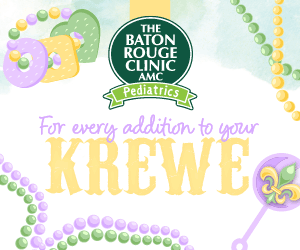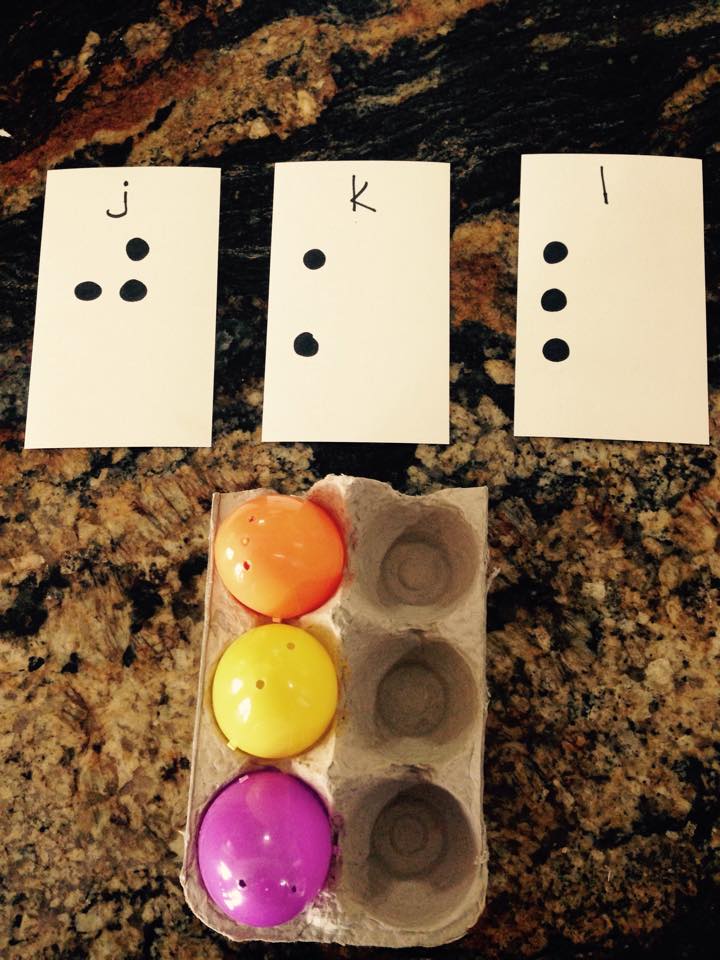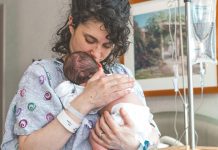I’m a worse case scenario kind of person. If my husband calls me on his way home from work, I answer assuming he’s been in a car accident. If I hear one of my children fall in his bedroom, I’m mentally preparing myself for a trip to the ER. Granted, these worse cases rarely ever happen in real life, but I can’t help myself from readying for them. So when my 4-year-old son failed an eye exam – despite having new glasses – I was prepared to hear some sort of bad news.
As it turns out, we didn’t get the worse possible news, which of course would be cancer or some other life threatening condition. But what I did hear seems like a close second: blindness. My 4-year-old has a rare eye disease called Retinitis Pigmentosa and he will be legally, if not totally, blind.
When I first got the news, it felt like I was in some sort of alternate reality. How could this be happening? Sure, my son is very farsighted and has a high prescription for glasses, but blindness? It seemed unreal.
But this is real, and I’ve managed to find a way to survive receiving such shocking news. First, I let myself grieve. I cried as I thought about all the things Noah will never be able to do, like drive a car or watch his bride walk down the aisle on his wedding day. I cried as I wondered if, as Noah’s vision gets worse, he would even remember what I look like. And I cried at the thought of just how much more difficult life is going to be for him, from needing to learn Braille to having fewer job opportunities.
And then I pulled myself together and told myself I had to snap out of it. After all, no amount of crying is going to help Noah. I let my Type A personality take over, and I sprung into action.
One of the first things I did after I stopped crying was reach out to my support network. I created a Facebook page called Prayers for Noah, which I use to update friends and family on his condition. Having one centralized place to go to for support has been a huge blessing to me.
I also looked for other parents of blind children. I found Facebook groups with tons of information, such as Parents of Blind & Visually Impaired Children, Louisiana Parents of Blind Children and Blind Homeschoolers. Being able to connect and chat with other parents has been so helpful as I try to figure out things such as where to buy Braille books and how to teach my son to walk with a white cane.
I also started researching like crazy. I learned that blindness doesn’t mean that someone lives in the pitch-black dark, but is really more of a spectrum of visual impairments. I’ve learned that until we have genetic testing completed, we won’t know exactly how blind Noah will be. In the meantime, we can anticipate that he will have tunnel vision, but still be able to see shapes and light, even though they will be blurry. Knowing that Noah will most likely still be able to see something has been so reassuring to me.
I also researched Braille, and taught myself the Braille alphabet one afternoon while my kids were watching TV. And I learned that there is so much assistive technology available to the blind that really equalizes situations. Noah will have access to plenty of tech to help him study and work.
Finally, I read and watched stories about other blind children and adults. And boy was I inspired. From seeing videos of two year olds navigating outdoors with their white canes to reading stories about successful blind adults, I realized that blindness is not the scary life sentence I first thought it was. Is Noah’s life going to be different from the one I had imagined for him? Sure. But despite this disability, Noah has a bright future ahead of him and I’m excited to watch his journey.
If you are the parent of a blind or visually impaired child, I would love to connect with you! You can find me on Facebook or email me at [email protected].



















Karen,
I know that living with a vision impairment can be tough. I had suffered with vision problems for from birth until I was 27 years old. I had many surgeries for my severe astigmatism and strabismus problems, I was also severely farsighted. It wasn’t until 2010 when I had enough. I could no longer wear contacts as no one down here could fit me in the right prescription. I was desperate to try and have some sort of improvement in my vision so that I could be fitted for contacts or to lower my RX for my glasses because my strong RX was causing severe headaches.. My childhood ophthalmologist had been telling me for over a decade that one day there would be a surgery that could help me. I started researching and found that there had been great success with a particular laser for Lasik. I then researched doctors and decided to make a trip to Houston to the Mann Eye Institute, After being screened and having test done for hours. I was told that they believed they could help me a lot. Two weeks later I had the procedure done. During the procedure I asked them if it was normal for me to be able to already see better and they said it wasn’t typical, but because my eyesight was so bad it was possible for me to see an improvement. I sat up from their table and squinted for a second and I was able to read the nurses name tag! I remember leaving from there and being able to read the names on the doors, the road signs, the clock in our vehicle and huge gas station signs all of this was something that I could not do without glasses and sometimes couldn’t do with glasses. The next day they tested my vision and I had 20/20 in one eye and 20/25 in the other. I guess what I trying to say is miracles can happen… I will be praying for your son that one day he can have his miracle.
God Bless
Thank you for sharing your story, Tabitha! I’m so glad you got your miracle!
My two cousins have this condition. They are in their fifties now and have had successful lives. There is so much technology available now to help. With your support, I am sure your son will be able to overcome his obstacles. And I am praying that a cure/treatment will be found soon!
My sister found out young that she was in fact turn blind rapidly. She has opticatrophy. It was scary at first for all of us but I looked up to her because she would not let it slow her down. She has a very full life even after 20 years of blindness. Honestly she didn’t let it define her. 🙂 she defiantly is a great inspiration to me.
You really need to grasp an understanding of legally blind before you dive into braille. Many people who are legally blind have more than enough sight to read and use the computer like anyone else. They may have to sit closer to the screen, but by no means do they need braille.
People hear legally blind and automatically assume that the person can’t see at all. That is simply not true. America needs an education in visual impairments. Perhaps try learning and then spreading the word on your blog.
As a legally blind person, I actually took offense to the way you spoke about your son’s future. You seemed more like he’d gotten a terminal diagnosis than a disability. There are plenty of things he will be able to do whether he can see or not. Educate yourself about the possibilities and don’t mope about things like driving. Today’s young adults actually hate driving. Why do you think Uber is such a success.
Let me enlighten you a little about MY experience with legal blindness. It might surprise you. I was born with congenital nystagmus which causes rapid uncontrollable eye movement. Because of the eye movement my brain and eyes were never able to work together to deve km op a good sense of sight. I do wear contacts and can correct one eye to about 20/150 but the other eye is 20/200 with a lazy eye and no peripheral vision. When it came time for me to go to school my parents had to fight for me to attend regular school despite the fact that I could read at 4. When in school the teachers really didn’t know what to do with me and the kids gave me absolute hell. I cried day in and day out not to gave to go back but I was told I was too smart to give up. When I graduated I fled from those people so quickly and never looked back.
I went to college and earned both a BS & MS. I’ve traveled the world ALONE. I own my own business and am on first name basis with some very affluent business people. They respect me because I’m bright and confident and really don’t take any BS. No I don’t drive a car and I find reading subtitles at movies absolutely impossible and u can’t appreciate a Picasso the same way you can, but I’ve made the best of it.
Now let me tell you what your son is in for school wise. He will be welcomed into the school system and will have advisors creating educational plans for him. Kids will be nowhere near as cruel because kids today are subject to all types of diversity. He will have the benefit of technology that goes beyond 20 pound tape recorders and books on tape. Sure there will be assholes and you will have to fight for him from time to time but the bottom line is that your son is a l I think better off than the generations of visually impaired kids who came before him.
My advice for you is to stop worrying about what might happen or what he won’t be able to do and start learning about the possibilities he actually does have. When I was in Waikiki 5 years ago I got to witness a totally blind surfer compete in the Duke’s Classic. Would he have been able to do that if his mom sat around crying about what he can’t do?
Also remember that there can be a big difference between legally and totally blind. Legally blind is less than 20/200 uncorrected vision. There’s a lot of room between that and totally blind. You gave no idea how he will end up. He may have enough sight to see his bride walk down the aisle or to see a beautiful sunset on Waikiki Beach or he may not. But try to think about the blind surfer or Stevie Wonder when you think about blindness and be glad it’s not a death sentence.
Please don’t get me wrong. I’m sincerely sorry about your son’s diagnosis. I know he has a tough road ahead of him, and I wouldn’t wish this on my worst enemy. My thoughts are meant to both give you hope and make you think. You could be the mom holding u our dying child’s hand at St. Jude, but you got lucky. I bet that mom would happily take a sentence of blindness over a terminal diagnosis.
My final words involve advice that all special needs parents need to hear. If you live in a small town, please consider relocation. The opportunities and level of education and tolerance are far worse the smaller the town. Your child would likely be the only person in school with a visual impairment. He will have to rely on you, another family member, or a friend to get around. Growing up legally blind in a small town is absolute hell. Don’t do that to him if you can help it.
Now mom go wipe the tears and stand string because you will forever he this child’s rock. You’ll dry a lot of tears and curse at a lot of ignorant people. You will have to be tougher than a drill sergeant to get through this. And you and your son will be just fine. Just move slow and take it as it comes. This is your reality now and you can handle it.
“Reader,” perhaps you missed the part where Karen expressed her thankfulness her son didn’t have a terminal disease. No one here is assuming legal blindness means totally blind.
I think you may want to take another look at this letter of love and acceptance before you respond inaccurately to what you obviously didn’t read. You have no idea what her son needs.
I know you have an agenda but Take it down a notch.
Beautifully written, Karen. I can feel your fear, grief, all the way through to your resolve and acceptance. Congratulations on learning all those Braille letters! 🙂
Karen,
Thank you for sharing your story. You are such a strong mom and Noah is so lucky to have you. Your optimistic attitude are certainly key in how he will view this challenge. I commend you for doing research, researching out to a support team, and taking a proactive approach to this very tough circumstance. I work at the university of Iowa and we are working tirelessly to find a cure for RP and other genetic diseases that cause blindness. Kids like Noah are exactly who we intend to find a cure for. Thank you again for sharing your story and reminding me how important our work is and continues to be.
Thank you for the work that you do, Kristin! It means the world to us! 🙂
Thanks for sharing this story. I have recently learned that my 4 year old daughter has a high risk of becoming legally blind or having low vision and it has absolutely devastated me. I will be paying very close attention to your journey on facebook 🙂
Any one know about infant glaucoma and child cataracts diagnosis? My son had his first surgery at 9months to and 7 more surgeries to now at 6years old…..we have been grateful for the limited 10% sight that Andreas could retain over these past 5 years but they could never correct nerve damage caused by the pressure the glaucoma caused him…… but what a resilient boy! His check up 2 months ago was very positive : Andreas was holding strong with the eye pressure and holding that being in good standing we were elated …..until he’s recently communicated cloudiness in the eye supporting the 10% vision remaining…..after visiting with the specialists he was diagnosed with cataract which needs to be removed to have any chance of retaining his 10% of sight….. but then surgeons informed us the swelling could completely damage/destroy the last 10% of sight Andreas has been relying on to see the world. We were hoping to hear if anyone else has a similar diagnosis and how they navigated that path? We are at a loss either way but still hope for the best…..
My daughter was born with congenital alternative estrophia . I waited 10years to have her. She is 20months old and it’s hard watching her grow and seeing her bump into things. She doesn’t talk . But I always wonder what does she see.
Hi , does anyone know of a website or Facebook page of support for a mother who’s adult daughter has lost her eyesight. I don’t know how to help her and I’m exhausted. She is so angry and verbally abusive to me and very critical of my help.
Is she connected with the National Federation of the Blind? There are local chapters and she will be able to connect with other blind adults, some who were born with vision and lost their sight later in life.